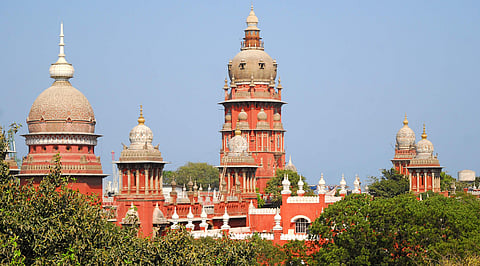

CHENNAI: The Madras High Court has called upon the Tamil Nadu government to take steps to pass a government order (G.O.) to enable issuance of a ‘no caste, no religion’ certificate to those who file applications with revenue authorities seeking the same.
A bench of Justices MS Ramesh and N Senthilkumar made the suggestion while allowing an appeal filed by H Santhosh of Tirupattur district against a single judge’s order refusing to direct the local tahsildar to issue ‘no caste, no religion’ certificate to his family members.
Setting aside the single judge’s order, the bench directed the authorities to entertain the appellant’s applications and issue a ‘no caste, no religion’ certificate within a month.
“While the Constitution of India prohibits caste-based discrimination, caste and religion still play a significant role in social life, politics, education and employment through reservation policies,” the bench said.
Describing the appellant’s efforts to have himself and his family members certified by the government of not belonging to any caste or religion “laudable”, the bench opined that this “would promote prohibition of caste-based discrimination” in the long run and be an “eye-opener” for like-minded citizens.
“Accordingly, we call upon the Government of Tamil Nadu to pass necessary orders, with a specific instruction to the authorities of the revenue department, to positively entertain applications seeking for grant of certificate of ‘no caste, no religion’,” the division bench said in the order passed on Tuesday.
Article 25 of the Constitution recognises freedom of conscience of an individual: HC
Calling the arguments of the revenue department that tahsildars are not empowered through any GO to issue such certificate as “paradoxical”, the bench noted that such certificates have been issued in some cases by the tahsildars in Tirupattur, Coimbatore, and Ambattur in recent years.
Even otherwise, when there is a constitutional mandate under Article 25, the “revenue authorities cannot wriggle out of this constitutional obligation” by quoting the absence of any particular rule or order, the bench remarked.It held that the single judge appeared to have been misguided by the submissions of the government pleader and the order was passed without reference to the mandate of Article 25 of the Constitution.
The bench said though Article 25 guarantees freedom of religion, it also provides for the state to make laws for social welfare and reform, even if they interfere with religious practices like abolition of untouchability and animal sacrifice.
Thus, the state would be under a constitutional obligation to implement the intention and object of Article 25 in general and for the purpose of this case, recognise the freedom of conscience of an individual to choose their own religious beliefs, the court said.
Advocates SN Subramani and T Nixon appeared for the appellant.